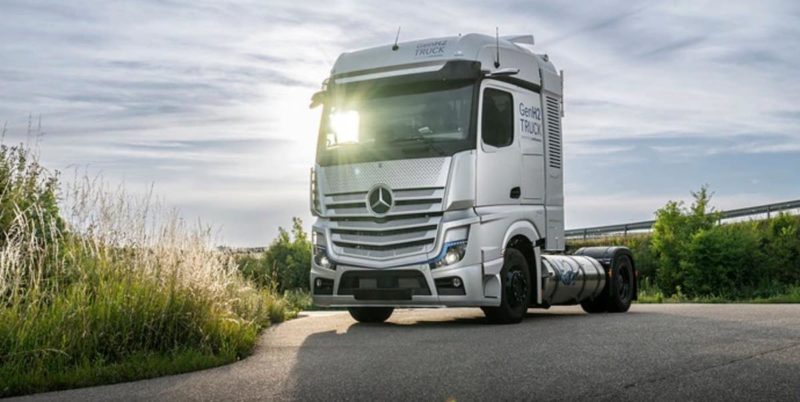Economists from France and Germany have called on their respective governments to accelerate the decarbonisation of freight transport by prioritising battery electric trucks over hydrogen-fuelled alternatives.
In a joint statement published late last month, economists from the European Union’s two largest economies described the decarbonisation of road freight transport as “essential” for achieving the EU’s climate targets.
Specifically, according to the economists, transport emissions are projected to continue increasing without “decisive” action due in large part to road freight’s heavy reliance on diesel-powered trucks.
“As the EU’s largest economies, France and Germany have a special responsibility to lead the way in freight transport decarbonisation,” they wrote.
But they said policies focused on the decarbonisation of the freight transport sector should focus on battery electric trucks “as these represent the most mature and market-ready technology for road freight transport.” It should include an accelerated roll-out of fast-charging networks along major freight corridors and in private depots.
The economists don’t dismiss the potential of hydrogen fuel-cell electric trucks as “another option for electrifying road transport.”
However, they highlight a number of barriers for hydrogen-based technology to transform the freight transport sector, including increased storage capacity; hydrogen refuelling stations for freight, and not just passenger vehicles; and the form hydrogen will take, whether that be gaseous or liquid.
More damningly for hydrogen advocates, battery electric trucks are simply more efficient. According to the economists, an electric truck on the road today consumes 50 per cent less energy than a hydrogen truck to cover the same distance “due to the energy losses involved in producing, transporting, and converting hydrogen”.
The economists advocate for parallel innovation of alternative technologies alongside battery electric trucks so as to “ensure the complementary options remain available if needed.”
However, put plainly, the economists believe that the publicly funded development of an infrastructure for these alternatives “makes little sense” at the present time due to the existing uncertainties.
“We suggest prioritising [battery electric trucks (BET)] strategically as the central technology for decarbonising road freight transport,” said Monika Schnitzer, co-chair of the Franco-German Council of Economic Experts (FGCEE). This is a no-regret approach.
“A government strategy focussing on BET as a central technology could provide truck manufacturers and operators with the planning security needed for future investments.”
Joshua S. Hill is a Melbourne-based journalist who has been writing about climate change, clean technology, and electric vehicles for over 15 years. He has been reporting on electric vehicles and clean technologies for Renew Economy and The Driven since 2012. His preferred mode of transport is his feet.

